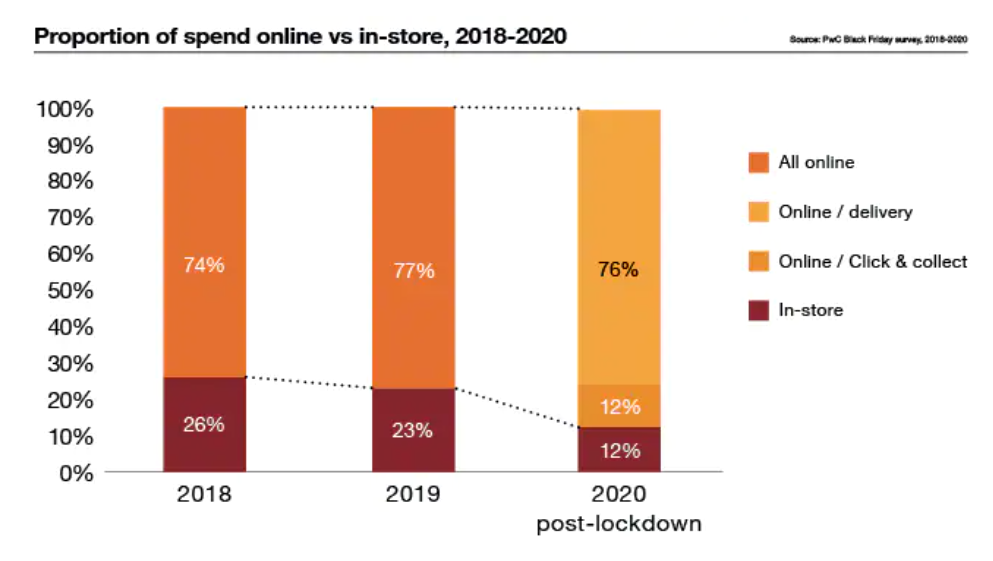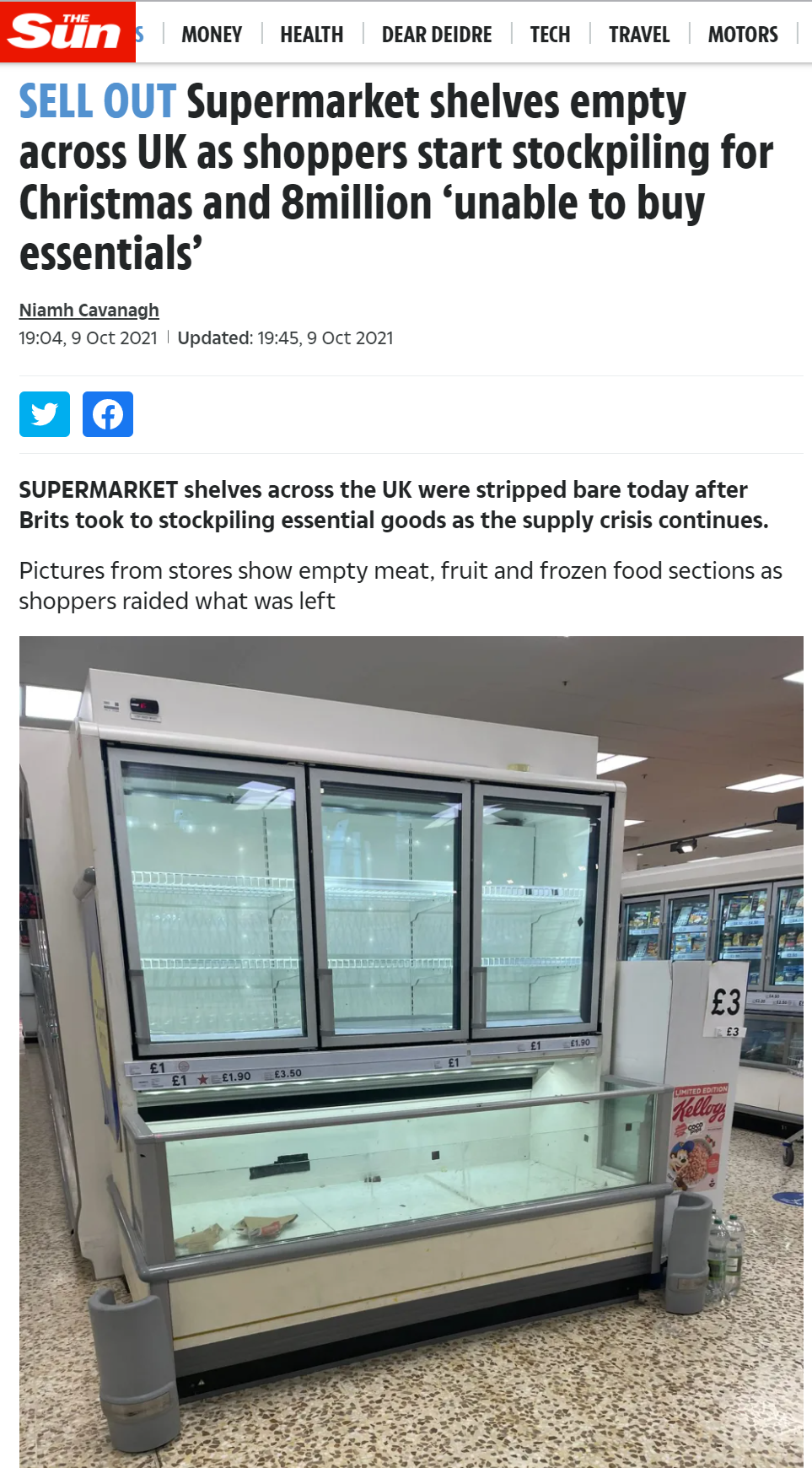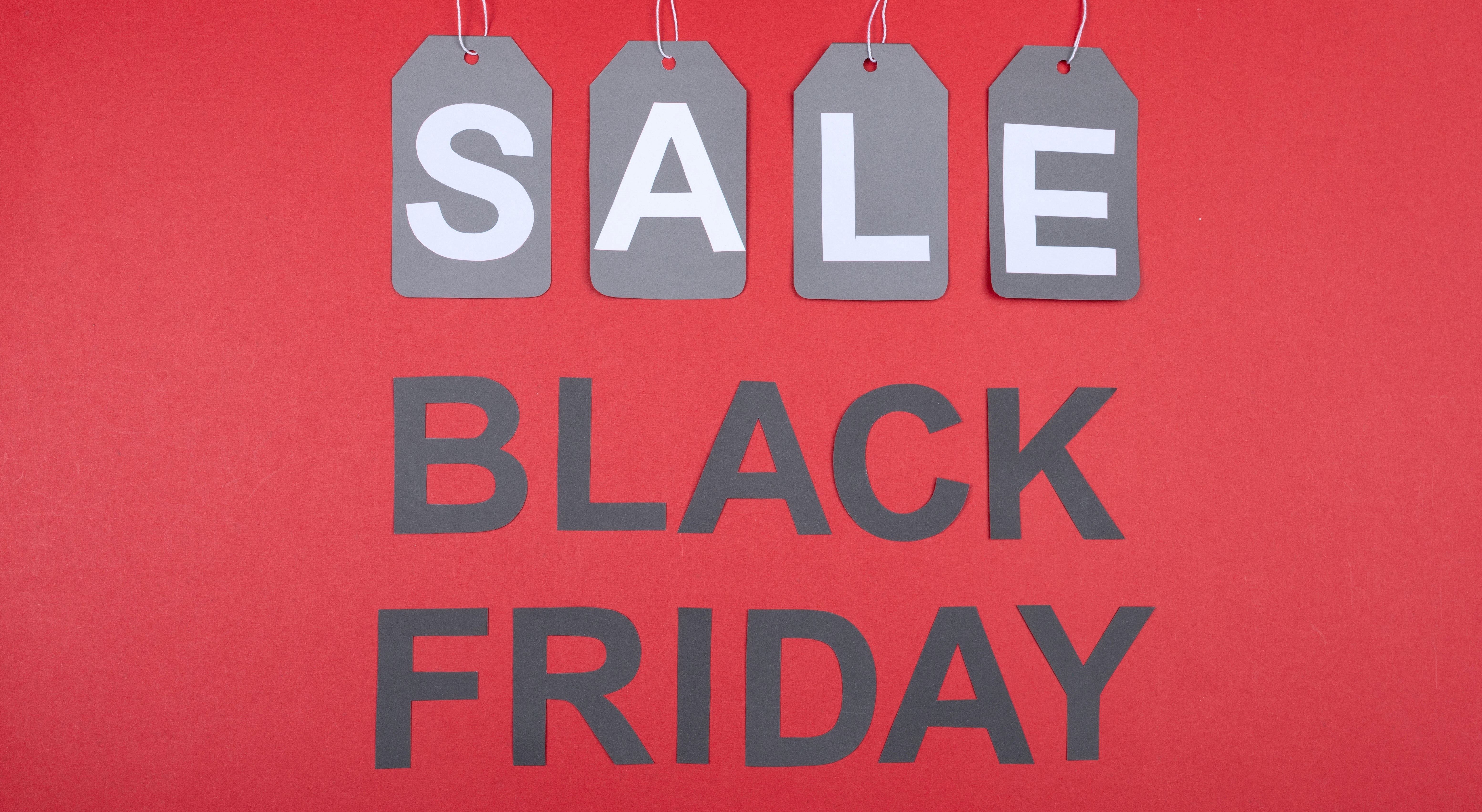Historically, the Black Friday sales period has resulted in both online and offline retailers experiencing a surge in sales as consumers hunt for the best deals. The Christmas holidays are also a key driver as people prepare for the Yuletide season. By offering a wide and attractive range of promotional deals, retailers have been competing for sales during one of their most important periods of the year.
Back in 2019 we reflected on the success of Black Friday in 2018 when 14.5 million consumers searched for deals which led to UK consumers spending more than £2.44 billion. Interestingly, 51% of those searches originated from a mobile device (according to Google ads), highlighting a change in consumers’ shopping habits in recent years and a need for mobile-first sales channels.
A host of retailers participate in the Black Friday sales with several heavy-hitters, including Argos, John Lewis, and Currys at the forefront of price slashes. Renowned service providers such as Sky, EE, and even British Airways also take the opportunity to offer deals.
Renowned online retailers, such as Amazon, are even recognised for running deals for an entire week.
With 26th November rapidly approaching, now is a time to reflect on both the effect of the global pandemic, and how current macro-environmental issues may cause a change in buyer behaviour. Arm yourself with substantiated knowledge and opinions about these factors before taking a thorough look at your strategy.
Last year, PWC released a comprehensive report covering ‘What do Black Friday sales look like in a pandemic?’ (N.B they also investigated Cyber Monday which is the beginning of the following week, and a further opportunity for consumers to grab a bargain).
They reviewed the importance of the sales event for both online and offline retailers.

They discovered that within two weeks, the lockdown effect had impacted predicted sales with lower interest and less overall spend. Their expectation was a huge decline of 20% against 2019 sales figures.
However, they highlighted that, during this time, customers were spending predominantly online. Coupled with the UK spending significantly more online than other countries resulted in a far less disappointing outcome during the sale period.

PWC also advised that during 2020:
“This channel shift is something we’ve witnessed most of the year, and is at least partly responsible for a record net loss in chain stores. In February, 20% of all retail sales were online. In May, it was 34%. Despite a slight fall to 27.5% in September as non-essential stores reopened, online sales are increasing again following a second lockdown. This will pose logistical challenges for retailers and delivery companies already at capacity.”
In their article they also highlighted how retailers should respond to the changes and discussed:
- Being multichannel
- Maximising margin
- Preserving cash
- Managing store portfolios
The 'power' of the media
According to many media channels both online and offline retailers have experienced customers already stockpiling for Christmas. We’re sure you’ve all seen images such as this one from The Sun!

Maximising opportunities for online sales
The opportunity for online retailers is even greater than before, with a growing shift in purchases being made through this channel.
- Make sure your mobile experience is as sharp and user-friendly as your desktop
- Keep an eye on volume of search terms for your product or service and have PPC specialists on hand to take immediate action with any paid media
- Revisit your online customer journey (CX) and ensure it is as clear and smooth as possible
- Review your messaging and timing:
- Can you cut through the Black Friday ‘clutter’ by creating your own special dates?
- Do you have enough stock to satisfy the demand of customers who are stockpiling now?
- Do you even need to spend on marketing right now, or would sales happen anyway?
- Could you hold back some product and campaign to people who missed out on Black Friday deals and steal customers from your competition?
- If you are selling perishable goods to ‘stockpilers’, can you attract some positive PR by working with local charities and food banks to educate customers where they can easily donate any excess purchases?
Avoiding a short-term and long-term catastrophic campaign
This week The Liverpool Echo released an article warning any shoppers who are waiting to get their hands on Black Friday deals.
Things are set to change this year, according to Tom Church, co-founder of money-saving community LatestDeals.co.uk.
“Retailers may actually decide to opt out of Black Friday for 2021 due to ongoing product shortages, a driver drought and higher shipping costs. Many of us get our savings ready for big events like Black Friday, as the discounts are a big incentive and they help us to get Christmas presents for less. However, a number of issues are impacting the UK this year, such as fewer lorry drivers, massive order delays and shipping costs hitting the roof. There aren’t as many products available this year due to logistics issues across every sector, with problems such as imports from areas like South East Asia affecting the supply chain.”

Our opinion is that you should approach Black Friday 2021 with a different mindset than before.
Although there may well be an even greater intensity and frenzy in consumer buying behaviour, online retailers could easily end up in a position where they are struggling to fulfil the increasing demand.
We are already experiencing an inevitable ‘panic buying’ scenario, stoked daily by the media and social channels, and only resulting in causing additional pandemonium (think toilet roll and dry pasta scenario, but across an even wider range of ‘essential’ items).
Localised media (such as the above item from The Liverpool Echo) will no doubt be circulating similar reports across other regions throughout the UK.
Retailers are already seeing the impact that the CO2 shortages, rumoured fuel shortage, and lack of haulage drivers are having on their supply and fulfilment chain, and are potentially struggling to keep up with customer demand.
Actions to take:
- Consider whether you should be taking some of your proposed Black Friday budget and spending it more evenly across a longer period of time
- Think about the long term effect this could have on your customers and their lifetime value. Remember that now is a time to build customer confidence by ultimately meeting their expectations. Don’t just blindly launch Black Friday promotional campaigns to achieve your sales targets that you won’t be able to deliver upon
- Do everything possible to NOT disappoint your customers by setting realistic delivery date expectations (better to promise later, rather than sooner in many cases). You could even consider working with a company such as Feefo, a customer review service who gather genuine feedback from verified customers, as well as powerful insight tools to assist your business in making informed decisions. You can use the platform to monitor sentiment and feedback in a real-time environment in order to quickly react to any concerns that may effect your reviews and reputation






